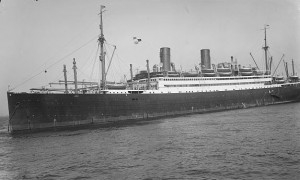From the Book of Deuteronomy:
When the Lord your God thrusts them out before you, do not say to yourself, “It is because of my righteousness that the Lord has brought me in to occupy this land”; it is rather because of the wickedness of these nations that the Lord is dispossessing them before you. It is not because of your righteousness or the uprightness of your heart that you are going in to occupy their land; but because of the wickedness of those nations that the Lord your God is dispossessing them before you, in order to fulfill the promise that the Lord made on oath to your ancestors, to Abraham, to Isaac, and to Jacob. Know, then, that the Lord your God is not giving you this good land to occupy because of your righteousness; for you are a stubborn people.
(From the Daily Office Lectionary – Deuteronomy 9:4-6 (NRSV) – February 19, 2013.)
 We human beings are so proud, so prone to taking credit we really have no right or basis to claim and, apparently, we’ve been doing it for a long time. Moses’ caution to the Hebrews not to do so, not to think that it is through their own merit that the Promised Land is being given them, is a caution to all of us, for we are all “a stubborn people.” Self-importance and obstinacy are the human condition.
We human beings are so proud, so prone to taking credit we really have no right or basis to claim and, apparently, we’ve been doing it for a long time. Moses’ caution to the Hebrews not to do so, not to think that it is through their own merit that the Promised Land is being given them, is a caution to all of us, for we are all “a stubborn people.” Self-importance and obstinacy are the human condition.
Aristotle once wrote, “Obstinate people can be divided into the opinionated, the ignorant, and the boorish.” (Nichomachean Ethics, Bk. VII) Michel de Montaigne is quoted as saying, “Is there anything so stubborn, obstinate, disdainful, contemplative, grave, or serious, as an ass?” Lent is a time of self-examination and perhaps this Daily Office lesson is a reminder to take a long, hard look out one’s own arrogant tendency to claim credit where none is due, at one’s one obstinacy. There is a link between the two, between pride and stubbornness.
Consider the case of two Russian ships, the Admiral Nakhimov, an aging passenger liner, and the Pyotr Vasev, a large bulk freight carrier. On the night of August 31, 1986, the two collided in the Black Sea near the port of Novorossiysk. The cause of collision was human stubbornness. Both captains were aware of the other ship’s presence nearby. Either could have prevented it, but neither wanted to give way to the other. Arrogance and stubbornness resulted in the deaths of 64 crew and 359 passengers.
As on the seaways, so on the paths of life. In business, in politics, in our personal lives, pride and obstinacy lead to problems, sometimes to disasters. During these days of Lent, remember Moses’ words, “Do not say to yourself, ‘It is because of my . . . whatever.'”
====================
A request to my readers: I’m trying to build the readership of this blog and I’d very much appreciate your help in doing so. If you find something here that is of value, please share it with others. If you are on Facebook, “like” the posts on your page so others can see them. If you are following me on Twitter, please “retweet” the notices of these meditations. If you have a blog of your own, please include mine in your links (a favor I will gladly reciprocate). Many thanks!
====================
Father Funston is the rector of St. Paul’s Episcopal Church, Medina, Ohio.



Leave a Reply